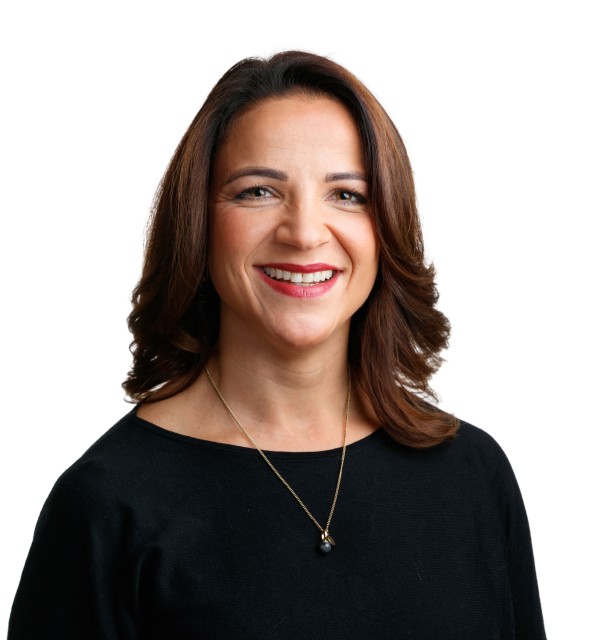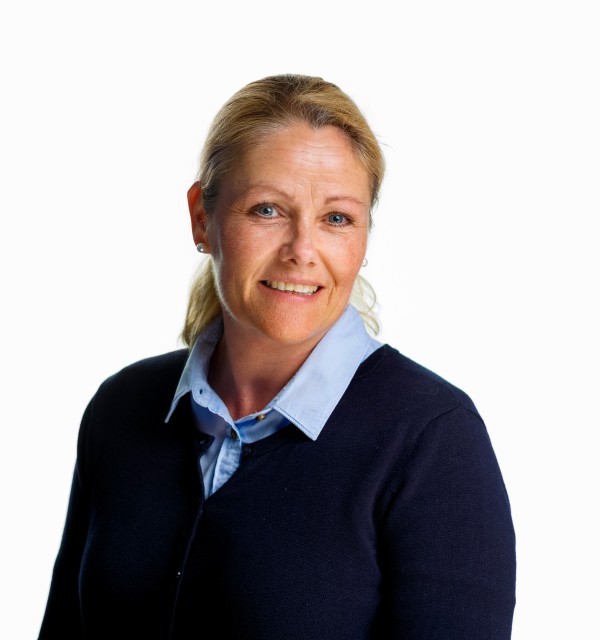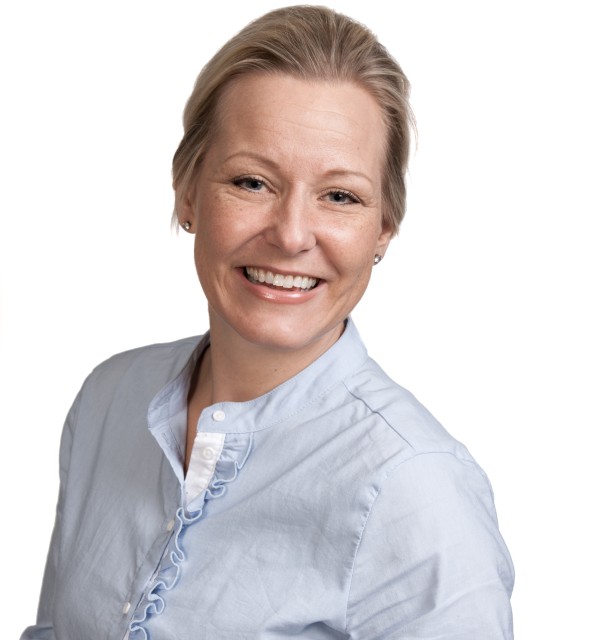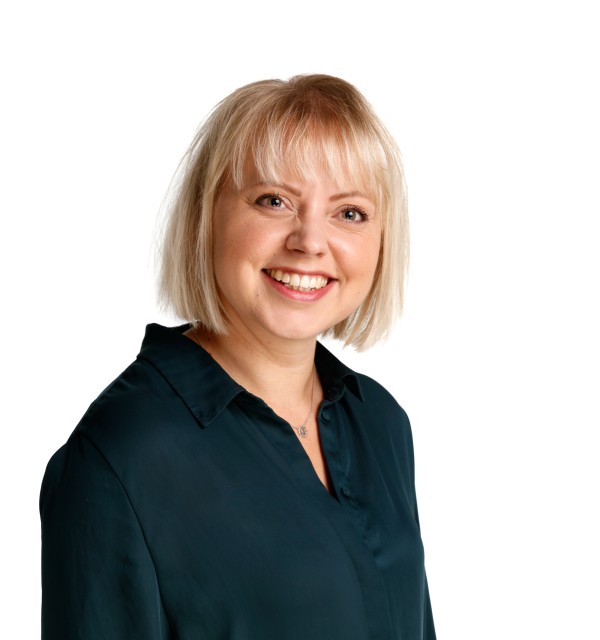The learning program ROBUST aims to increase well-being, motivation and academic achievement among lower secondary school pupils through social and emotional learning. ROBUST will be evaluated in the research project Resilient.
Collaboration between the UiS Business School, Centre for Learning Environment, Jærskulen, Sandnes municipality, Stavanger municipality, and external partners.
Develop a learning programme called "ROBUST". The goal is to enhance well-being and motivation among lower secondary school pupils by promoting social and emotional skills.
The project has been granted 20 million Norwegian kroner from the Research Council of Norway’s FINNUT programme.
Why do we research on youth resilienc and develop a learning programme?
There is an increasing amount of stress-related afflictions among young people.
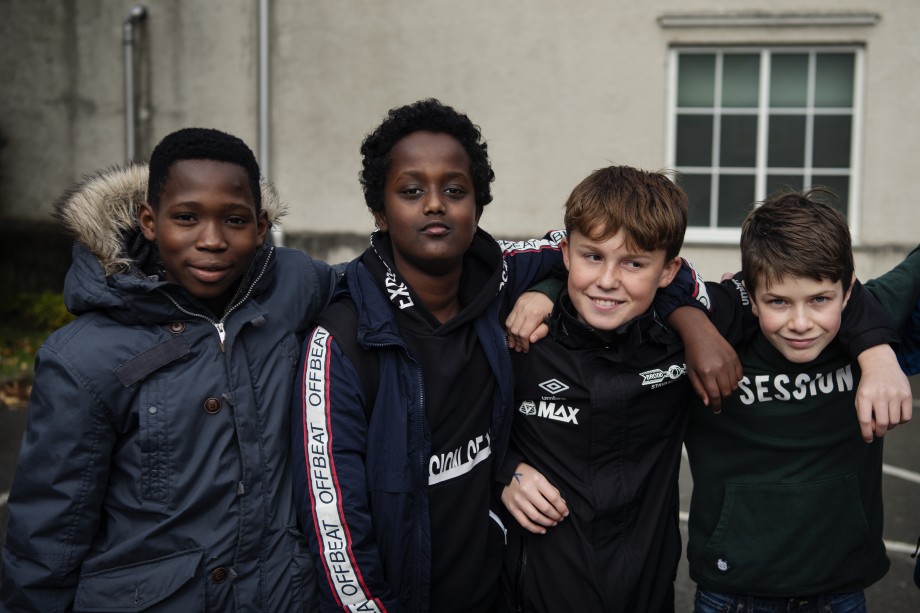
The experiences of stress is linked to the expectations faced at school and otherwise in life. Thus, measures to render adolescents better able to handle the challenges and expectations they will have to face, render them more robust in terms of the challenges of life, are important. Based on research, we know that such measures may have a considerable positive effect for children and young people's ability to handle challenges at school, their learning outcomes and mental health.
The goal of this research project is to improve youth well-being, motivation and academic achievement through social and emotional learning.
Learning program for Norwegian 9th graders
The Centre for Learning Environment and the University of Stavanger Business School have developed a measure named ROBUST. ROBUST is a course for teachers where they learn how to teach youth five main elements:
- Social relationships
- Mindfulness
- Problem solving
- Emotion regulation
- Growth mindset
This measure greatly emphasises the importance of pedagogical methods that students of the relevant age-group find attractive, and is to a large degree structured as exercises where the students participate actively. The measure also uses visual teaching aids adapted to students in lower secondary school.
Objective
The primary objective of the research project Resilient is to conduct a randomized controlled trial to investigate effects of ROBUST. Through Resilient researchers will investigate effects on social and emotional competencies, well-being, motivation and academic achievement post-intervation and in a one-year follow-up.
Secondary objectives includes to (1) understand the mechanisms through which ROBUST works or why it does not work, (2) investigate differential treatment effects of ROBUST across gender, parental education, and pre-intervention measures of motivation and adacemic achievement, and (3) investigate effects of ROBUST on teachers' job satisfaction and well-being, and students' perceptions of teachers practice.
One hundred 9th-grade classrooms in six municipalities will participate in the trial. The intervention will take place from fall 2021.
About the research project
Quality education is one that fosters the social and emotional development, as well as the academic development of each child.
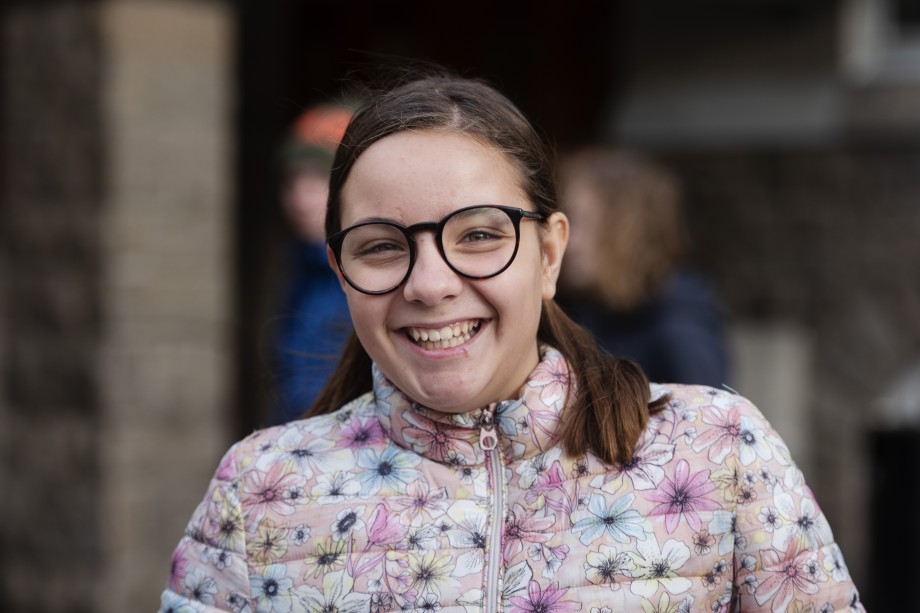
Social and emotional competencies are important, as they are closely linked to an individual's well-being and critical for motivation in school, academic success and labor market participation (OECD 2015). The current middle school curriculum and teacher practice in Norway do not reflect the international research literature stressing social and emotional learning as a key component of quality education (NOU 2014:7). An extensive national revision of the learning plan is currently addressing this concern. Our project Resilient is designed to meet the demands of the new learning plan.
Resilient will empirically investigate if middle schools can improve youths' social and emotional competencies, and thereby enhance students' well-being, motivation and school achievement. We will conduct a randomized controlled trial (RCT) with at least 100 eighth-grade classrooms (n=2500 students), in which eighth-graders (14 years old) in treated classrooms participate in a social and emotional learning intervention called Resilient. Resilient is co-produced and piloted with users, and consists of a scientifically based curriculum, a web-portal with teacher and student resources, and an accompanying 10-credit teacher education. Based on international empirical research on how to enhance youths' social and emotional competencies, Resilient fosters competencies in social relationships, emotional regulation, problem solving, and motivational enhancement. We measure intervention-effects by assessing students' social and emotional competencies, well-being, motivation and school achievement at pre-intervention, at the end of the one-year intervention, and in a one-year follow-up. During the year of implementation, we conduct an extensive implementation and process evaluation, in order to understand why or why not the intervention is effective.
About ROBUST
ROBUST is a social and emotional learning intervention aiming to stimulate mental well-being, motivation and academic achievement among students in lower secondary school.
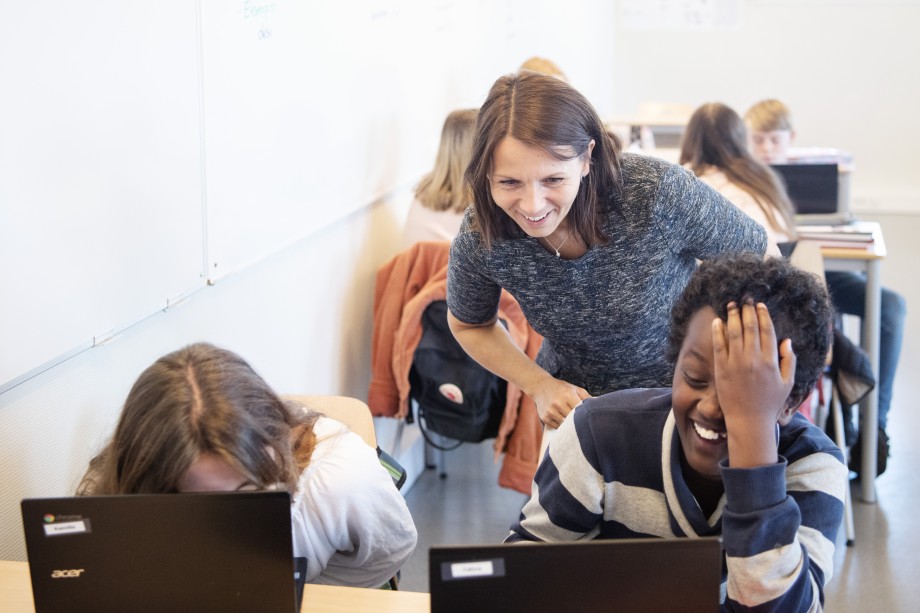
The article “Building Social and Emotional Competencies for Coping with Academic Stress among Students in Lower Secondary School” describes a preliminary version of ROBUST and includes a qualitative evaluation of this version of ROBUST. The article could be found by this link https://www.tandfonline.com/doi/full/10.1080/00313831.2021.1939145
The final version of ROBUST is currently under evaluation by a research project funded by the Norwegian Research Council.
Researchers and co-workers in Resilient
Key information
Project managers: Edvin Bru from Centre for Learning Environment, Mari Rege from The University of Stavanger Business School and Nina Nygård Magnussen from Jærskulen.
Contact person: Hilde Ness Sandvold
Resilent is a research project funded by the Norwegian Research Council, and is lead by The Norwegian Centre for Learning Environment and Behavioural Research in Education, in cooperation with The University of Stavanger Business School.
Centre for Learning Environment is home to several large, innovative research projects.
The projects are centred around the following topics: Bullying, Classroom management, Mental health, Learning environment, Playful learning and Organization development.
Theoretically and methodologically the centre displays a broad fan of approaches to different aspects of learning environment.
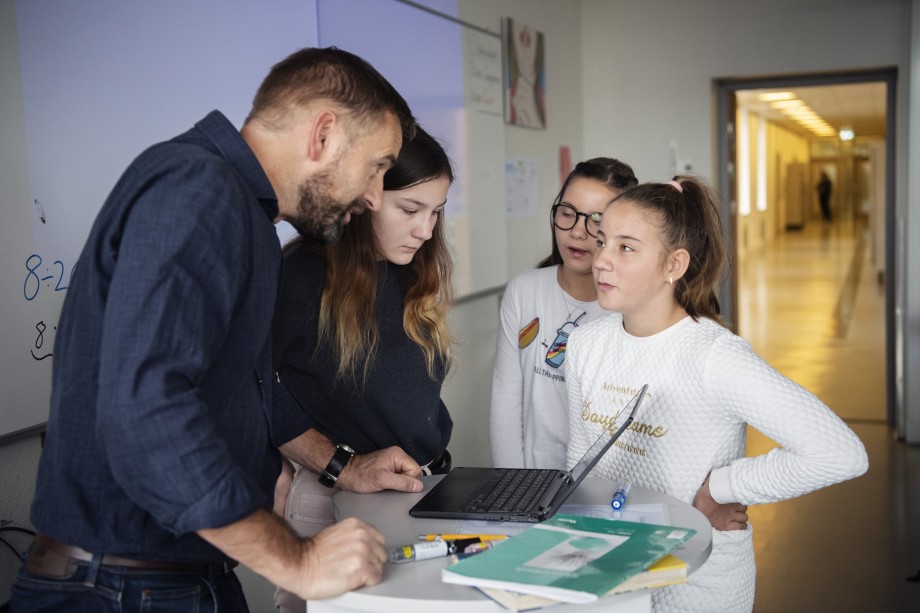
Embarrassing conversations may enhance the well-being and motivation of teens
Talking with their classmates about topics that are relevant to their everyday life, can give teenagers a sense of belonging and contribute to increased well-being and motivation in school.
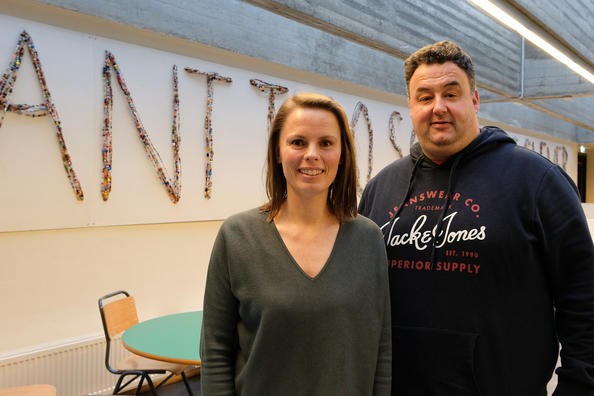
First published: 05.03.2020
As part of the research project Resilient, a new teaching programme will be deployed in many 8th-grade classes in Nord-Jæren beginning autumn 2020. The goal is to enhance well-being and motivation amongst the students, and to strengthen the knowledge and skills needed to deal with challenges both inside and outside of school.
The teaching programme is called ROBUST and is designed to bolster students' social and emotional skills, as well as their understanding of what motivates them to do schoolwork. The programme runs over a period of 25 school hours and students explore five topics with the teacher:
- Social relationships
- Mindfulness
- Problem solving
- Emotion regulation
- Growth mindset
When ROBUST is rolled out in the autumn, it will have undergone several rounds of quality checks. One of the checks will include the 8th-grade teachers, because they know better than anyone what challenges await for both students and teachers.
‘The topics brought up for discussion in ROBUST are highly relevant. This is a programme that is suitable for many of the issues that young people are encountering’, teacher Lisa Mari Staddeland from Gosen Lower Secondary School says.
Staddeland explains that the topics raised in the teaching programme provide ample opportunities to raise and discuss challenges. She believes the programme contributes to more openness in the classroom, and gives students tools to manage emotions and situations they may encounter. Students can listen to their peers and be reassured that they are not alone.
‘Obviously, some of these things are embarrassing to talk about, but it is better for young people to talk about them in the classroom with a teacher rather for them to google to find answers’, she says.
Staddeland and her colleague Odd Tjelta are part of the reference group who are collaborating on the ROBUST teaching programme. They provide feedback on the programme and give advice on what will or will not work in the classroom.
‘It’s an exciting programme to help develop! Among other things, we adapt the examples used so that students can draw associations to their own lives. We also provide feedback on the formal aspects and the way the topics are presented’, Tjelta says.
Specific and solution-oriented
‘What distinguishes this programme from others is that it is solution-oriented. It's concrete and something students can identify with — or that they will soon identify with in the not-so-distant future. Students can use this in their own personal situations, Tjelta tsays.
He says the programme will be tailored for 8th grade, and many suggestions are offered as to what young people can do.
'The focus is not only on problems. There is a focus on solutions, on convincing yourself that you have both the aibility and responsibility to do something yourself’, he says.
Openness in the classroom
Although the programme is tailored for 8th-graders, the teachers believe it can be used in the 9th and 10th grades too. The topics can be brought up periodically, and students acquire a shared vocabulary that allows them to talk with one another and with the teacher about their feelings.
‘Eighth-graders are at a wonderful age; some have already hit puberty before the others, and the way they talk and think is different’, Staddeland says.
ROBUST makes provisions for plenary conversations in the classroom. Students can hear what their peers say and be reassured that they are not alone.
‘Sometimes at the beginning of adolescence you get the feeling that you are very alone, and then you don't necessarily see the people around you. Through ROBUST, students realise that others think about many of the same things, and they can rely on each other. We have many good conversations and a different kind of openness in the class’, she says.
Life skilles is a major topic in the new curricula
‘Helping and supporting students has always been part of the teacher’s role. So in that respect, this is nothing new, but now these things are laid down in the curricula and they are required of us in a different way’, Tjelta says.
He explains that it is the teacher's job to work with the life skill topic at various levels.
‘ROBUST is a nice programme that we can introduce the whole class to, and it is specifically tailored to this group: the 8th grade. There are many other programmes out there, but they are not necessarily tailored specifically to this group’, he says.
Although ROBUST is planned to run over 25 school hours covering the different topics, the programme is not rigid.
‘It is also up to the teacher to adapt this programme to his or her class, but it is systematic and it is reassuring for the teacher. It's not always so easy to know what subjects are important to discuss and how to proceed, but this is a good tool for doing things properly’, Staddeland says.
Text written by: Ina Midttveit
Life skills research receives 20 million in funding
The research project “Resilient” aims to increase well-being and motivation among lower secondary school pupils. The project has received 20 million kroner from the Research Council of Norway.
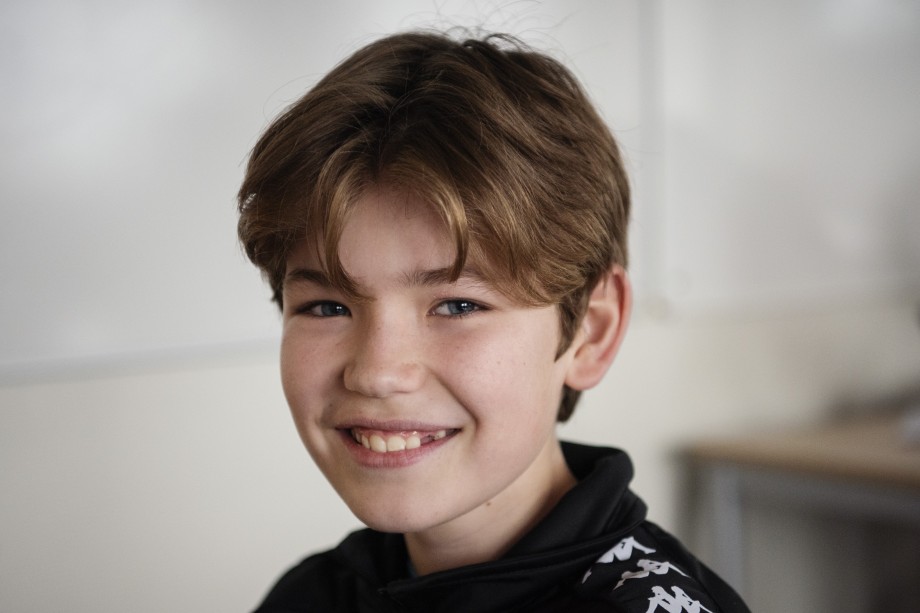
First published: 01.07.2019
Many young people are experiencing more stress in everyday life, and a lot of this is associated with the demands they experience in relation to schoolwork and life in general. Figures from the PISA survey also show that many young people say that it is difficult to get to know others and that they feel lonely.
“The research project ‘Resilient’ aims to increase well-being and motivation among lower secondary school pupils through the promotion of social and emotional skills”, says Mari Rege, professor at the University of Stavanger Business School.
The project will help pupils to learn what stress is, how it affects them and how they can deal with it in a positive way.
“This will enable pupils to better overcome school-related stress, as well as the stress they face in life generally”, she says.
20 million in research funding
There isn’t much research on this subject, but “Resilient” has now been awarded 20 million kroner from the Norwegian Research Council’s programme called FINNUT.
“We believe that this can be really useful for young people and can help them during the transition to lower secondary school and later on during their education. School plays an increasingly significant role regarding stress-related challenges”, says Edvin Bru, professor at the Centre for Learning Environment at the University of Stavanger.
The project will take place over a five year period. During that time, researchers hope to be involved with 100 teachers and their pupils in their classrooms. This means that around 3000 pupils will be asked to participate in the research starting in the autumn of 2020. Half of the classes will partake in a teaching programme called ROBUST.
“We are proud to have received these funds, so now we must use them effectively so that we can achieve the goal of increasing pupils’ well-being and motivation”, says professor Sigrun K. Ertesvåg at the Centre for Learning Environment.
Life Skills is an interdisciplinary theme in the new curriculum
When the new core curriculum comes into effect, life skills and health will be included as an interdisciplinary theme: “Life skills and health as an interdisciplinary theme in schools will provide pupils with skills that promote good mental and physical health, and provide opportunities to make responsible life choices.” (The Norwegian Directorate for Education and Training)
Among other things, this interdisciplinary theme will include topics such as value choices, interpersonal relationships, being able to set boundaries and respect others’, and being able to manage thoughts, feelings and relationships.
“We hope that this project, and the programme we develop around it, can provide quality and comprehensive contents regarding this curriculum theme”, says Bru.
The teachers who will teach ROBUST will receive further training that will provide them with the skills needed to carry out the programme together with their pupils.
“The programme includes tasks and exercises that focus on social relationships, personal feelings, problem solving and conditions that affect motivation regarding school work. By being involved in these themes, pupils gain knowledge about their own reactions and they gain skills to solve problems in various ways”, he says.
Implementation is important
The way in which this type of initiative is implemented by schools and teachers is essential regarding how effective the initiatives will be. Implementation is the process by which theories, activities and structures are adapted, concretised and introduced into the field of practice.
“It involves the management, expertise and the organisation as a whole. Teachers must try out and assess what works in the classroom and with the pupils. When the implementation is done correctly, teachers and pupils will be left with the feeling that this was useful. Teachers feel better qualified and pupils become more robust”, says Ertesvåg.
Based on a pilot project
The new “Resilient” project builds on the experience gained from a pilot project conducted in Bærum Municipality during the 2018-2019 academic year. The pilot project has been conducted in all lower secondary schools in the municipality, and teachers have learnt how to give pupils insight into emotional regulation, problem solving, attentive presence, learning mindsets, as well as social skills and social responsibility.
“Data is currently being collected from this project. “Resilient” will be based on this material”, says Bru.
Large collaborative project
‘Resilient’ is a collaboration between the Business School, the Centre for Learning Environment, Jærskulen, Sandnes Municipality, Stavanger Municipality, as well as external partners.
“Representatives from the municipalities and the research communities will actively participate in the design and implementation of the project. Experts on social and emotional learning and research methods will be involved. These come from the University of Stavanger, The Norwegian Centre for Child Behavioural Development (NUBU), the University of Bath and Stanford University. Bærum Municipality will also help with the experience gained from the pilot project”, tells Ertesvåg.
Research that benefits society
Recently, researchers at UiS have also established Synapse Lab, where they will cooperate across disciplines and the faculty. “Resilient” will also be part of this cooperation. The goal is to gain more knowledge about motivation, effort and learning in education and working life. Both research and society will benefit from this.
“Schools and kindergartens, businesses and companies often implement new initiatives in order to promote motivation and learning. But they rarely get to know how effective these initiatives actually are. According to research, the initiatives are not usually based on knowledge that can actually have an effect”, said Mari Rege, when Synapse Lab was launched.
Text written by: Ina Midttveit



